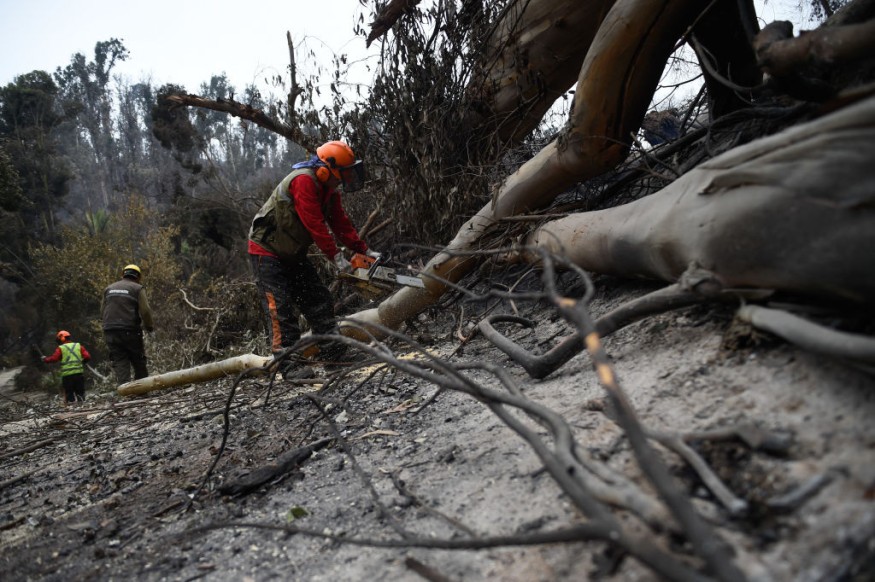The latest report showed that Chile suffered from scorching heat and deadly wildfires. The death toll reached 51 to fires, which could likely increase.
The extreme heat, dry conditions, and strong winds allowed fires to spread. The challenging weather conditions can complicate the wildfire concerns in parts of the country.
Deadly Wildfires in Chile

Fifty-one casualties were recorded due to wildfires, causing a state of emergency to be declared. Firefighters worked hard to extinguish the deadly wildfires in Valparaiso, urging residents to evacuate. Smoke reached the area in the city of Vina del Mar. Unhealthy air can harm the following populations:
- older adults
- people with medical conditions
- outdoor workers
- children
The forecast warned that temperatures could reach 104 degrees Fahrenheit, making it more challenging for affected areas. The wildfires managed to burn at least 26,000 hectares.
Additionally, the report noted that the death toll could increase due to the complicated weather conditions.
In a recent Nature World News (NWN) report, devastating wildfires were recorded in Mexico. Over 100 intense fires were reported due to the warm conditions, indicating a deadly fire potential in the 2024 wildfire season.
Climate change and correlation to wildfires
Chile has experienced raging wildfires due to the intense summer heat and El Nino phenomenon. The warming trend can significantly impact vulnerable communities, particularly those with dry vegetation and low relative humidity.
In February, the country also experienced deadly wildfires due to low relative humidity and El Nino effects. Recent reports warned of hotter temperatures in summer, which could result in more wildfires. NWN reports that improper land use contributed to the fires.
In 2023, South America recorded heatwaves and abnormally hot temperatures, particularly in Chile and Argentina. Climate change drives extreme weather events, including the following:
- Wildfires
- Drought
- Hurricanes or storms
- Heatwaves
It can influence weather patterns, increase daily temperatures, and cause a lack of rainfall, making communities more susceptible to fire risks.
Wildfire and Extreme Community Preparedness
Communities and homeowners can likely experience wildfire concerns near areas with low relative humidity, drought, or dry conditions. Avoiding outdoor burning is important to avoid wildfire spread amidst the extreme heat.
In addition, Chile residents are at risk of prolonged exposure to hotter temperatures and unhealthy wildfire smoke. People should stay updated with the latest forecasts and possible evacuations.
For older adults, individuals with diseases, and children, it is essential to vkeep away from prolonged exposure to intense heat. Staying hydrated and avoiding strenuous outdoor plans is advisable.
Related Article : Wildfire Activity in Wet African Tropical Forests Exacerbated by Deforestation, Climate Change [Study]
For more similar, don't forget to follow Nature World News
© 2025 NatureWorldNews.com All rights reserved. Do not reproduce without permission.





